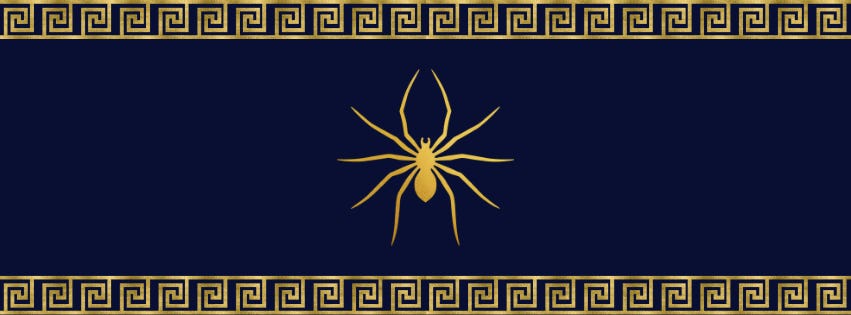Our story begins, as so many of our stories do, with Zeus pursuing (literally) and raping a woman who has gone to great lengths and through many transformations to avoid him. This was Metis, the goddess of wisdom.
But wait, you say—Athena is the goddess of wisdom! And you’re not wrong. Athena did come to be known as the goddess of wisdom (among other things). But before her, there was her mother, a Titaness. Metis is described in Hesiod’s Theogony as one “who knows more than any god or mortal.” She was the one who created the emetic which Zeus used to force Kronos to regurgitate his (Zeus’) siblings.
Yet even after doing him a solid like that, Zeus still raped her. Rude, even for him.
And that’s not all—Gaia, we are told, prophesied that Metis would bear children who were wiser and more powerful than Zeus. Hesiod says of these children,
“…first she would bear gleaming-eyed Tritogeneia, who had strength and wisdom equal to her father, and then a son, a king of gods and mortals, with a violent heart.” ( Theogony)
What’s interesting to me is that a prophecy kind of implies that it was decreed by the Fates, whose authority surpasses even Zeus’. There are tons of myths and plays focusing on the utter futility of trying to avoid one’s fate. Yet Zeus somehow does; he swallows Metis while she’s still pregnant, thinking to prevent her from bearing either child.
But Metis does give birth, and she does so inside Zeus’ head. Zeus has to ask Prometheus (or maybe Hephaestus) to crack open his skull because Athena’s in there pounding away. When the ax splits Zeus’ skull, she leaps out, fully armored.
What’s cool about Athena is that she’s the goddess not only of war (the more strategic, intellectual aspect) but of handicrafts like weaving. In this way I feel like she’s a very well-rounded goddess, embodying both masculine and feminine aspects. But her involvement in womanly pursuits like weaving are tempered in myth with a healthy dose of pride and anger (because we just can’t have women being nice to each other, ever, for any reason, apparently).
Although there are connections between Athena and Penelope, Athena’s most direct involvement with a weaver comes in the story of Arachne, the fullest version of which is found in Ovid’s Metamorphoses. The basic story goes like this: Arachne is a talented weaver who foolishly boasts that she’s better than Athena herself. I’m sure you can guess how well that goes over.
Athena accepts her challenge, beats her (obviously) and then beats her again, literally this time. With a spindle. Arachne hangs herself in shame and Athena saves her in the form of a spider.
But could there be more to the story? Let’s find out.
Keep reading with a 7-day free trial
Subscribe to Kassandra's Quill to keep reading this post and get 7 days of free access to the full post archives.

